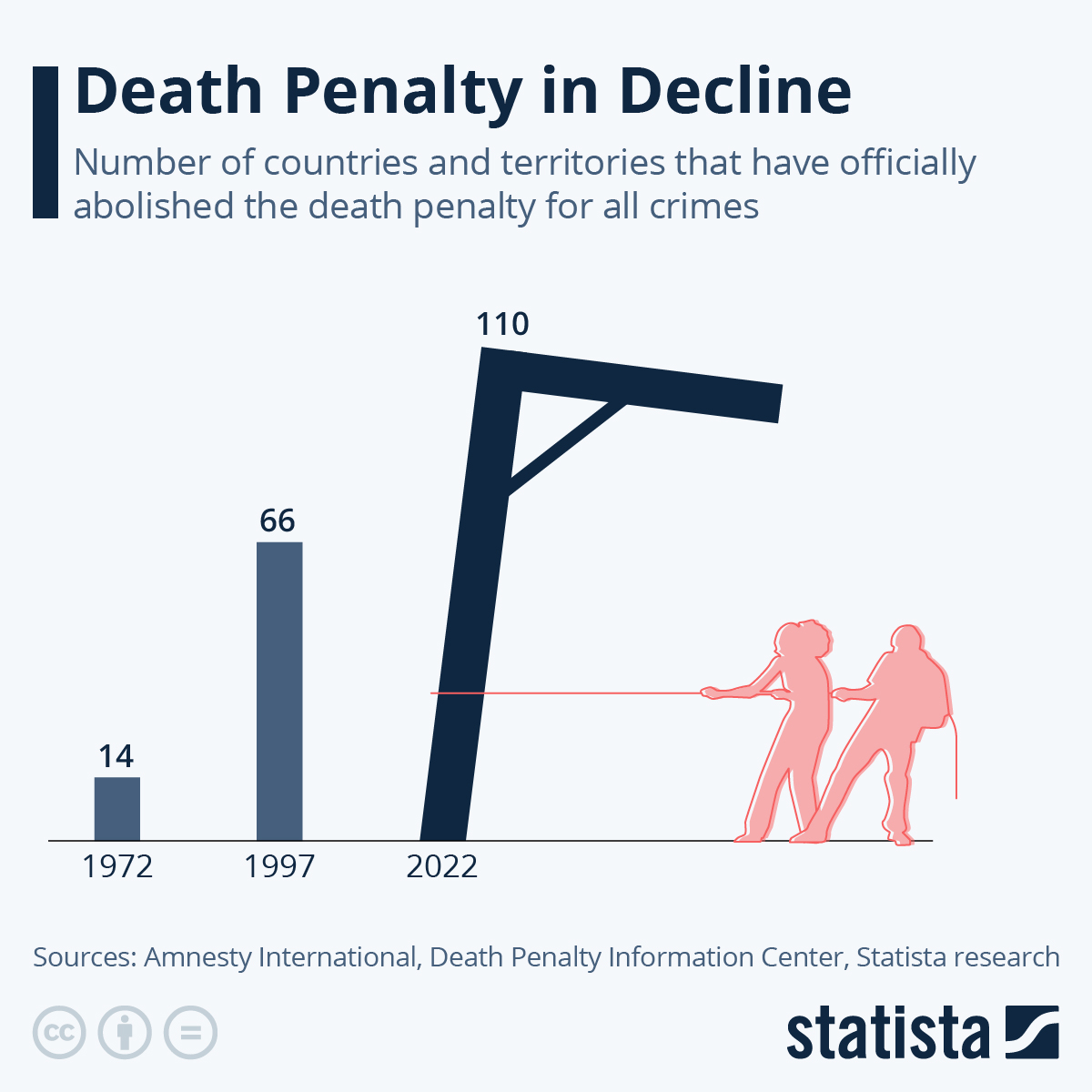The death penalty continues to be practiced in several countries around the world and even more still have not abolished it yet. On today’s World Day Against the Death Penalty, the practice remains on the books in 88 countries. The biggest executioners in the world in 2021 were China, Iran, Egypt and Saudi Arabia, while the death penalty also continues in the United States, Brazil, India, Vietnam, Singapore, Malaysia, Japan, Indonesia, Nigeria and all of the Arab Gulf states, among others.
That being said, the fight to abolish the death penalty has also made strides over the decades. According to data from Amnesty International and the Death Penalty Information Center, only 14 countries had abolished the death penalty in 1972. This number had risen to 16 at the end of 1977, when Amnesty International published the Declaration of Stockholm, stating its goal to abolish the death penalty globally. 25 years on, in 1997, the number of abolitionist countries and territories had risen to 66. As of October 2022, the count of nations which no longer have the death penalty has risen to 110, with Equatorial Guinea being the latest addition to the list as of last month.
In 2021, the use of the death penalty was once more on the rise as Covid-related delays ended. Many countries continue to impose the death penalty for drug-related offenses, rape, manslaughter or questionable penal codes surrounding treason or insurrection. In 2021, executions and death sentences also violated international law by affecting minors and people with psycho-social/intellectual disabilities, by using confessions linked to torture or proceedings carried out without the presence of the defendant as well as by being handed down by military courts or in a mandatory manner.





















